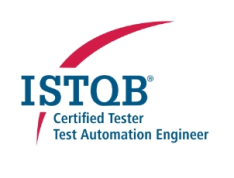 To help and support our clients we are providing a limited number of 250 daily discount codes. Hurry, first come, first served!
To help and support our clients we are providing a limited number of 250 daily discount codes. Hurry, first come, first served!
Software Testing Courses FAQs

Why we're the go to training provider for you

Best price in the industry
You won't find better value in the marketplace. If you do find a lower price, we will beat it.

Trusted & Approved
We are accredited by PeopleCert on behalf of AXELOS

Many delivery methods
Flexible delivery methods are available depending on your learning style.

High quality resources
Resources are included for a comprehensive learning experience.




"Really good course and well organised. Trainer was great with a sense of humour - his experience allowed a free flowing course, structured to help you gain as much information & relevant experience whilst helping prepare you for the exam"
Joshua Davies, Thames Water



Looking for more information on Software Testing Courses
 80+ Software Testing Interview Questions & Answers: Learn
80+ Software Testing Interview Questions & Answers: Learn Software Tester Salary: What to Expect in the Coming Years
Software Tester Salary: What to Expect in the Coming Years Software Tester Roles And Responsibilities: A Detailed Explanation
Software Tester Roles And Responsibilities: A Detailed Explanation What is Software Testing Life Cycle (STLC)? You Need to Know
What is Software Testing Life Cycle (STLC)? You Need to Know Quality Assurance in Software Testing: Examples, Benefits, and Methods
Quality Assurance in Software Testing: Examples, Benefits, and Methods Software Testing Methodologies: A Complete Overview
Software Testing Methodologies: A Complete Overview Software Testing Techniques: Learn with Examples
Software Testing Techniques: Learn with Examples 7 Software Testing Principles You Must Know
7 Software Testing Principles You Must Know Fundamentals of Software Testing: Discussion
Fundamentals of Software Testing: Discussion
















 If you wish to make any changes to your course, please
If you wish to make any changes to your course, please


